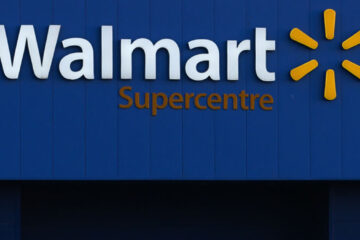It all started with the Green Frog.
That may sound like the beginning of Jim Henson’s bio and how the creator of The Muppets came up with Kermit the Frog.
Related: Analysts shift gears on Carvana stock price targets on growth prospects
But this is actually the story of Bill Darden, an American businessman and namesake of Darden Restaurants (DRI) , the multibrand restaurant operator.
In 1938, Darden was just 19 when he opened his first restaurant, The Green Frog, in Waycross, Ga. Darden went on to open the first Red Lobster restaurant in Lakeland, Fla., in 1968.
The chain — which recently exited Chapter 11 bankruptcy protection — was sold to General Mills (GIS) in 1970 and went through quite a history. General Mills later spun off its restaurant business and named the new company after Darden.
Darden Restaurants sold Red Lobster in 2014 and today the company owns such brands as Olive Garden, Longhorn Steakhouse, Cheddar’s Scratch Kitchen, Yard House, Capital Grille, Seasons 52, Bahama Breeze, and Eddie V’s.
The company said in July that it was acquiring the Austin Tex-Mex chain Chuy’s in a $605 million all-cash deal that is slated to close next month.
Darden CFO notes ‘significant step down’
The restaurant industry has been taking some hits lately.
Grocery and restaurant prices continue to rise even as overall inflation slows. Restaurant prices are climbing at a much higher rate than groceries, according to Vericast’s 2024 Restaurant TrendWatch. Restaurant costs spiked 5.1% annually, while groceries rose 1.2%.
Related: Iconic Campbell Soup makes a bold decision some may not like
More than two-thirds (68%) of respondents said they were trading down from restaurant meals to food from the grocery store to avoid the rising costs, the marketing-services firm said. More than 71% of Gen Z and Millennials said they were doing so.
In addition, consumers are looking at special deals when choosing to dine out, with 30% of respondents saying they won’t try a restaurant without a coupon or discount offer.
Darden Restaurants has been feeling the pressure. The company’s first-quarter earnings report on Sept. 19 missed Wall Street’s forecasts.
“While we fell short of our expectations for the first quarter I believe in the strength of our business and I am confident that the strategy we developed nearly 10 years ago remains the right one for our company,” Chief Executive Ricardo Cardenas told analysts during the earnings call.
Sign up for TheStreet’s free daily newsletter.
As for the numbers, Darden earned $1.75 a share in the quarter, up from $1.59 a year earlier but short of Wall Street’s call for $1.83.
Revenue rose 1% to $2.76 billion but missed analysts’ consensus estimate of $2.8 billion. Same-store sales declined 1.1% in the quarter.
“June same restaurant sales trends were in line with our fiscal 2024 fourth quarter results and we were surprised by the significant step down in traffic beginning with the 4th of July holiday,” Chief Financial Officer Raj Vennam said.
“However sales trends rebounded in August, resulting in flat same restaurant sales for the month. The first three weeks of September have further improved, resulting in positive same restaurant sales quarter to date for all of our segments, except fine dining,” he added.
On the plus side, Darden maintained its full-year outlook and noted improving sales trends.
And the company announced a multiyear delivery partnership with Uber (UBER) . The venture is set to begin with a limited number of Olive Garden locations later this year, with national expansion at the restaurant chain expected by May 2025.
“We began having more serious discussions about Uber Direct in April and our teams began working on the systems integrations in May,” Cardenas said.
“It was apparent to us that the solution addressed our concerns. From a guest perspective it protects the in-restaurant experience as drivers will pick up orders curbside in the same manner our guests do today.”
“It also enhances the takeout experience by giving guests the option to have someone else pick up their order,” he said.
Raymond James, Morgan Stanley upbeat on DRI
Several investment firms weighed in on Darden’s results, including Raymond James, which raised its price target on the company to $187 from $160 and affirmed an outperform rating on the shares.
More Retail Stocks:
After Chapter 11 bankruptcy closures, retail stores find new lifePopular troubled essential retail chain exits Chapter 11 bankruptcyRetailers made millions charging you cash back fees, report says
Darden reported “soft” first-quarter results, which were more than offset by stronger quarter-to-date trends and optimism about Olive Garden’s launch of delivery with Uber, the analyst tells investors in a research note.
The investment firm estimates that over time the Uber partnership could prove to add low- to mid-single-digit-percent incremental sales.
Morgan Stanley raised the firm’s price target on Darden to $188 from $175 and maintained an overweight rating on the shares.
The Darden story “hadn’t been resonating lately, at least from the investor perspective,” but “that has clearly shifted with some new drivers elaborated,” the investment firm said. The Uber partnership is “the real news” from the company’s first-quarter report, the firm said.
Morgan Stanley said it would still expect some short-term volatility, but it adds that Uber, along with new product, limited-time offers, price-pointed marketing, and speed of service factors should drive the company.
Veteran trader: DRI balance sheet ‘tough to look at’
TheStreet Pro’s Stephen Guilfoyle also took a look at Darden’s numbers and didn’t come away satisfied.
“This balance sheet is a tough one to look at,” he said. “The current ratio is really sort of atrocious. Short-term debt seriously outweighs cash on hand, meaning the debt will have to be rolled over, likely at higher interest rates. Just one man’s opinion, but the balance sheet is not in good shape.”
The veteran trader said that positive cash flows could correct that problem, adding that “the only issue there is that cash flows are not that positive, and the firm spends more cash than it creates on share repurchases and cash dividends.”
“At some point, I would speculate, the repurchases would have to stop and the dividend will have to be reduced,” he said. “Either that, or the fundamentals remain messy (polite term) indefinitely.”
Guilfoyle said he would be shorting Darden Restaurants, betting on a drop in the stock price.
“I cannot see myself investing in a corporation with such weakness in the fundamentals, but I can short such a corporation, especially when only 7% of the float is held in short positions,” he said.
Related: Veteran fund manager sees world of pain coming for stocks


